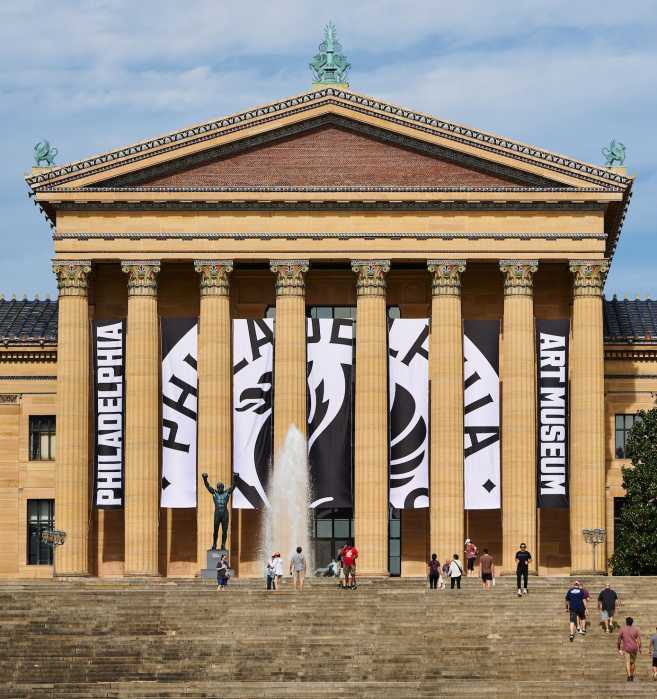A potential toxic chemical leak from a former industrial site has shuttered a section of Bartram’s Garden and sparked concerns about contamination of the Schuylkill River.
The spill does not pose a risk to the city’s drinking water, as the Philadelphia Water Department’s Schuylkill River intake centers are located significantly upstream.
After learning of the release, the John Bartram Association, which runs the 50-acre Southwest Philadelphia park, canceled its public fishing and boating programs. A 400- to 500-foot section of the Bartram’s Mile Trail, where a visitor spotted greenish liquid flowing from a neighboring property toward the river, has also been blocked off, according to the organization.
Bartram’s Garden, on a webpage where staff said updates will be posted, describes the leak as an “evolving and potentially dangerous situation.”
“We are looking for guidance around next steps, around how to protect our visitors and our staff,” said Maitreyi Roy, the garden’s executive director. “We’re really calling for help to make sure that we can contain the impact of this as best we can.”
Preliminary testing revealed the presence of chromium, including the hexavalent version of the chemical – a known carcinogen that impacts the respiratory system, according to the U.S. Environmental Protection Agency.
Walkers, runners and cyclists on the trail “are at a very low risk of exposure,” the state Department of Environmental Protection said in a statement Thursday. Exposure to skin can be reduced by washing with soap and water, officials added.
Someone using the trail notified Bartram’s Garden of the spill earlier this week. The same person had alerted the water department and DEP in April, park representatives said.
Documents acquired by Metro show that, during an initial visit that month, a DEP inspector observed discolored fluids emerging from a pipe into a drainage ditch that runs alongside the former petroleum tank farm at the site. The property is enrolled in a state cleanup program, according to the department.
The inspector found the discoloration extending onto the trail; however, none was found at the stormwater discharge pipe that feeds into the Schuylkill River, according to the report. He instructed the property’s owner, Alliance HP, to identify the chemical and build a berm to prevent the runoff.
Several piles of dirt were constructed to block the discharge when the DEP returned in May, the documents show.
A PWD analysis in April found the substance was not algae and suggested the discoloration could be from a synthetic dye. Chromium was found in groundwater and soil samples collected in April and May through initial testing conducted by an Alliance HP consultant, DEP officials said. The company has said it will add the chromium remediation to its broader cleanup plan, according to the department.
State environment workers plan to take samples for further testing from along the bike path and riverbank, DEP said Thursday.
Alliance HP purchased the former tank farm, at 51st Street and Botanic Avenue, in late 2021 and intends to turn the property into warehouse space. The firm, which has an office in Bryn Mawr, did not respond to a request for comment.
The Parker administration said the city is “working closely with state environmental partners to assess the situation and ensure the public health and safety of the surrounding area.” Her office added that a fire department hazardous material team found no evidence of air quality issues or toxic runoff during an inspection Wednesday.
Gauthier, whose district includes the park, said in a statement Wednesday that she was “appalled and angered” to find out that state and local agencies have known about the possible contamination for months without notifying the community.
“If a constituent did not bring this to our attention, we would not have known and would have been unable to take any action,” she added. “Southwest deserves answers and accountability, and I intend to get it.”
DEP representatives did not respond to questions by the time Metro went to print Wednesday.
Gauthier added that Southwest Philadelphia “has wrongfully been the region’s dumping ground for decades.”
In May, the EPA awarded $2 million to the Philadelphia Industrial Development Corporation for the cleanup of a neighboring former oil tank property known as the 49th Street Terminal. The Philadelphia Energy Solutions refinery, which exploded in 2019, sat not far away, on the other side of the river.




























